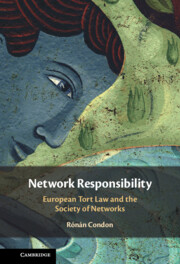Introduction
Published online by Cambridge University Press: 14 July 2022
Summary
The Introduction situates the book in a broader context of tort theory. The key argument advanced is that with the rise of transnational regulation and law-making, the settled academic debates in tort theory, whether corrective justice theory or law and economics, are inadequate explanations of the social role and function of tort law today. The Introduction, then, develops an alternative theoretical framework for tort law rooted in Ladeurian systems theory, which focues on the societal role of private (tort) law. The basic argument is that it is not feasible or convincing to present tort law apart from its societal knowledge base from which it draws its models of liability. It is then argued that when tort law is understood in its societal role at a transnational and European level, new theoretical insights and models of liability can be perceived. The new model that emerges at a European level in products’ liability case law is a form of network responsibility, which focuses on the role of peripheral parties to torts, which fulfil normatively secondary roles in the society of networks. This can become a wider template for tort liability in governance networks, and this argument will be deepened in Chapter 4 using examples from value chain liability.
- Type
- Chapter
- Information
- Network ResponsibilityEuropean Tort Law and the Society of Networks, pp. 1 - 28Publisher: Cambridge University PressPrint publication year: 2022



